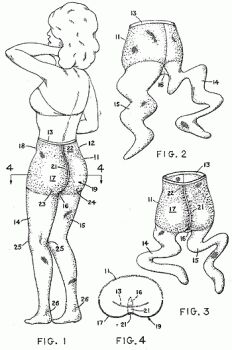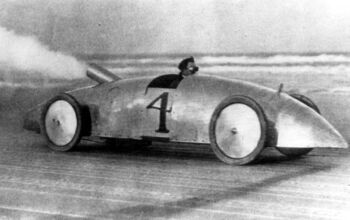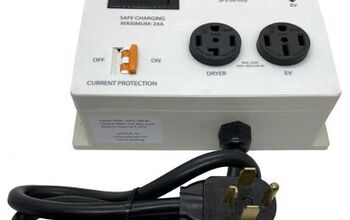How Green Was Detroit's Technology?
James Malackowski penned an editorial in today’s Detroit News, improbably arguing that “much of the privately funded green and energy innovation in the United States will stall or likely never come to fruition if the domestic automobile industry fails.” Malackowski reaches this conclusion by comparing the Detroit 3’s patent portfolio in four areas (emission control, hydrogen fuel cells, hybrid/electric tech, and “emerging related technologies developed by these same firms including solar, wind and other green inventions”) with those of 15 other large automakers. His conclusions, presented without sourcing, are that “GM has higher average quality and newer green technology and patents than the other 14 automakers combined”; “Ford and GM together hold approximately a third of all green technology patents and the related value”; “GM has 70 percent of the patents in the emerging technology category. This domestic share increases to 85 percent if Ford is added”; and “Ford owns 30 percent of all patents with a similar related value measure in emission control innovation.” Unfortunately for Malackowski’s argument, comparing the number of held patents is meaningless considering that these innovations are simply not reflected in these firms’ products.
There’s no need to hammer home the mediocrity of Detroit’s technological offerings; Chevy’s mild hybrids, the Escape hybrid’s japanese-sourced transmission, the dismal failure of the two-mode hybrids, Chrysler, the absence of viable hydrogen vehicles, the PNGV dead-end and much more tell the real story. Malackowski simply counts the number of patents held, without analyzing their value or application in consumer products. As we reported back in March, Detroit’s patent filings are on the rise, but not because the amount and quality of new technology innovation is on the rise. OEMs and suppliers are simply filing more lawsuits than ever before, making intellectual property a new and attractive revenue source. Until this technology filters into consumer products, Malackowski’s patent-counting is just patently misleading.
More by Edward Niedermeyer
Latest Car Reviews
Read moreLatest Product Reviews
Read moreRecent Comments
- Lou_BC This is less harmful to one's re-election chances than harder driver's licence exams and making people re-test.
- 28-Cars-Later Probably should investigate the buyers too, maybe a basic psych eval?
- 28-Cars-Later "Despite nobody really digging the moniker, Honda has told Autocar that it only plans on changing the name of the model in China (as part of a more comprehensive facelift) because that’s where they’re having the most trouble and anticipated the largest sales volumes.""Customers in China just can’t pronounce it,” explained the source."So the Chinese are class A customers but frack the rest of y'all we don't care what you think or can understand?
- ToolGuy Is a Tesla store the same as a Tesla gallery? 16955 Chesterfield Airport Road is a gallery. 5711 S Lindbergh Blvd is a store. I wonder if anyone knows how far away those two locations are from each other. I wonder if Tesla's website shows vehicles in inventory. I wonder if there is a distance dropdown. So many questions.
- 28-Cars-Later Zerohedge reported something similar in Belgium with the reasoning being the Chinese are flooding Europe with EVs in the early innings of a trade war. For Tesla any guess is a good one but my money is on BEV saturation has been reached.


































Comments
Join the conversation
American patents are all about making the description as vague as possible and suing anyone who remotely appears to infringe on it. They are more scam than protection. WE can be thankful that old Henry Ford fought the Selden Patent until he won. http://en.wikipedia.org/wiki/Selden_patent